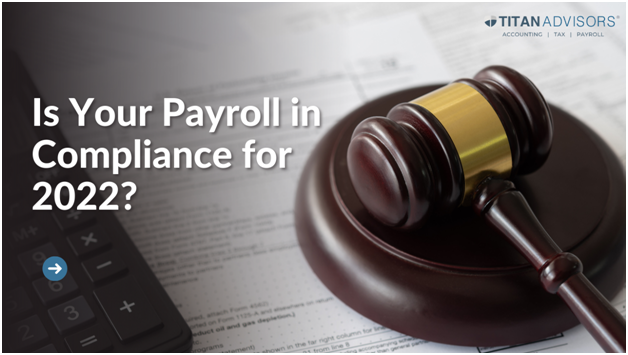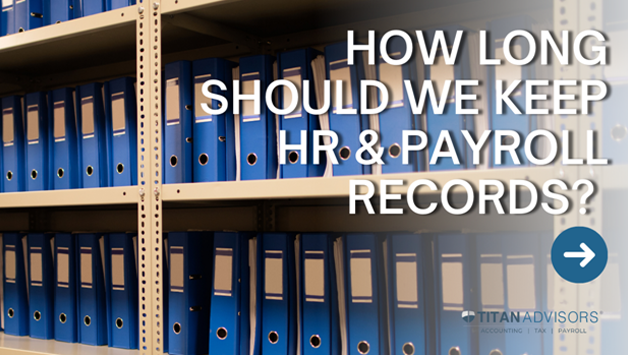Every year, many employers find themselves scrambling to stay in compliance with new laws and regulations that come into effect. 2022 is no exception, as there are a number of important changes this time around. It’s important to know what these changes entail so you can make sure your company is up-to-date
What does payroll compliance mean?
There’s no way around it, payroll laws and regulations are complex and numerous. Generally speaking, however, in order to maintain payroll compliance, you must make sure you withhold the proper amount of taxes from employee paychecks and remit those funds to the appropriate government agencies on a timely basis. You must also ensure you provide employees with accurate information about their earnings, deductions, and tax withholdings.
Which payroll laws and regulations should I be aware of?
You should take care to familiarize yourself with standard payroll laws and regulations even if you hire a provider to help manage payroll for your business. Here are just a few:
The Fair Labor Standards Act and Compliance
FLSA establishes minimum wage and overtime pay standards, as well as for recordkeeping requirements.
Non-exempt employees must receive the federal minimum wage rate of $7.25 per hour as well as overtime at a rate of 1.5 times their regular pay. Here overtime is defined as any hours worked beyond a standard 40-hour workweek. If your state or local minimum wage is higher than the federal, you must then pay that rate.
The Family and Medical Leave Act and Compliance
FMLA provides eligible employees with job-protected leave for certain family and medical reasons.
This policy ensures that covered employers provide qualifying employees with up to 12 weeks of unpaid, job-protected leave per year for qualified family and medical reasons. Under the FMLA, eligible employees are entitled to:
- Continue their health insurance coverage while on leave
- Return to their same or a comparable job at the end of leave
- Take up to 26 weeks of leave in a single 12-month period to care for a covered service member with a serious illness or injury
The Equal Pay Act
EPA prohibits sex-based wage discrimination between employees who perform substantially equal work in the same establishment.
The Federal Unemployment Tax Act and Compliance
FUTA imposes a tax on employers that is used to fund state unemployment insurance programs.
As defined by FUTA, employers must pay 6% of the FUTA wage base, or the initial $7,000 of the employee’s annual salary. Always check with your state as well. If your business is subject to state unemployment tax, you could qualify for a credit of up to 5.4%.
The Federal Insurance Contributions Acts and Compliance
FICA requires employers and employees to pay Social Security and Medicare taxes.
Under FICA, the employer must match the employee contribution for both SS and Medicare. The Social Security tax rate is 6.2% and the Medicare tax rate is 1.45% for a combined tax responsibility of 7.65% for employers and employees respectively.
2022 Compliance Changes
Now that we’ve covered the basics, let’s take a look at some of the key changes coming in 2022.
Social Security
The wage base for Social Security increased from $142,800 (2021) to $147,000. That means that employees will be subject to Social Security taxes on all wages up to $147,000 in 2022.
Health Flexible Spending Arrangement
After a $100 increase, employees can now contribute up to $2,850 to their Health FSA in 2022.
Pre-Tax Contributions
Pre-tax 401K contribution limits increased to $20,500 in 2022. In addition, savers over the age of 50 can make a maximum annual catch-up contribution of $6,500 for a total annual contribution of $27,000. Limitations on traditional and Roth IRAs, remain the same, however.
What could happen if my business fails to comply?
If your business is found in non-compliance with payroll laws and regulations, you may face a number of penalties. These can include:
- Liquidated damages
- Government audits
- Interest
- Civil monetary penalties
- Back pay
- Criminal charges (in extreme cases)
In addition to these potential penalties, failing to comply with payroll laws and regulations can damage your business’ reputation and create a negative work environment. It’s important to stay on top of these changes and ensure your business is compliant with all applicable laws and regulations.
As payroll laws and regulations continue to evolve, it’s more important than ever to make sure your company is up-to-date. Stay informed about the latest changes and make sure your payroll is compliant for 2022 and beyond. For more information, visit our website.





